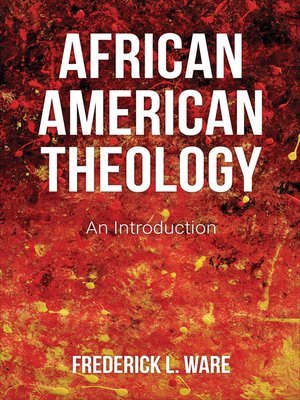
Sign up to save your library
With an OverDrive account, you can save your favorite libraries for at-a-glance information about availability. Find out more about OverDrive accounts.
Find this title in Libby, the library reading app by OverDrive.



Search for a digital library with this title
Title found at these libraries:
| Library Name | Distance |
|---|---|
| Loading... |
This book presents a substantial introduction to the major methodologies, figures, and themes within African American theology. Frederick L. Ware explores African American theology from its inception and places it within dual contexts: first, the African American struggle for dignity and full humanity; and second, the broader scope of Christian belief. Readers will appreciate Ware's demonstration of how black theology is expressed in a wide range of sources that includes not only scholarly publications but also African American sermons, music, news and editorials, biography, literature, popular periodicals, folklore, and philosophy. Each chapter concludes with questions for discussion and suggested resources for further study. Ware provides a seasoned perspective on where African American theology has been and where it is going, and he demonstrates its creativity within the chorus of Christian theology.
|This book presents a substantial introduction to the major methodologies, figures, and themes within African American theology. Frederick L. Ware explores African American theology from its inception and places it within dual contexts: first, the African American struggle for dignity and full humanity; and second, the broader scope of Christian belief. Readers will appreciate Ware's demonstration of how black theology is expressed in a wide range of sources that includes not only scholarly publications but also African American sermons, music, news and editorials, biography, literature, popular periodicals, folklore, and philosophy. Each chapter concludes with questions for discussion and suggested resources for further study. Ware provides a seasoned perspective on where African American theology has been and where it is going, and he demonstrates its creativity within the chorus of Christian theology.







